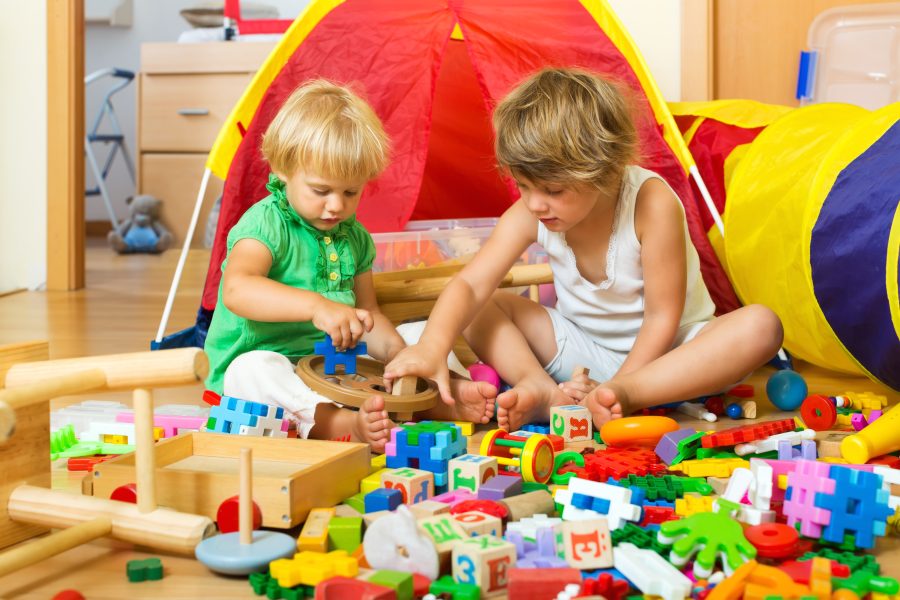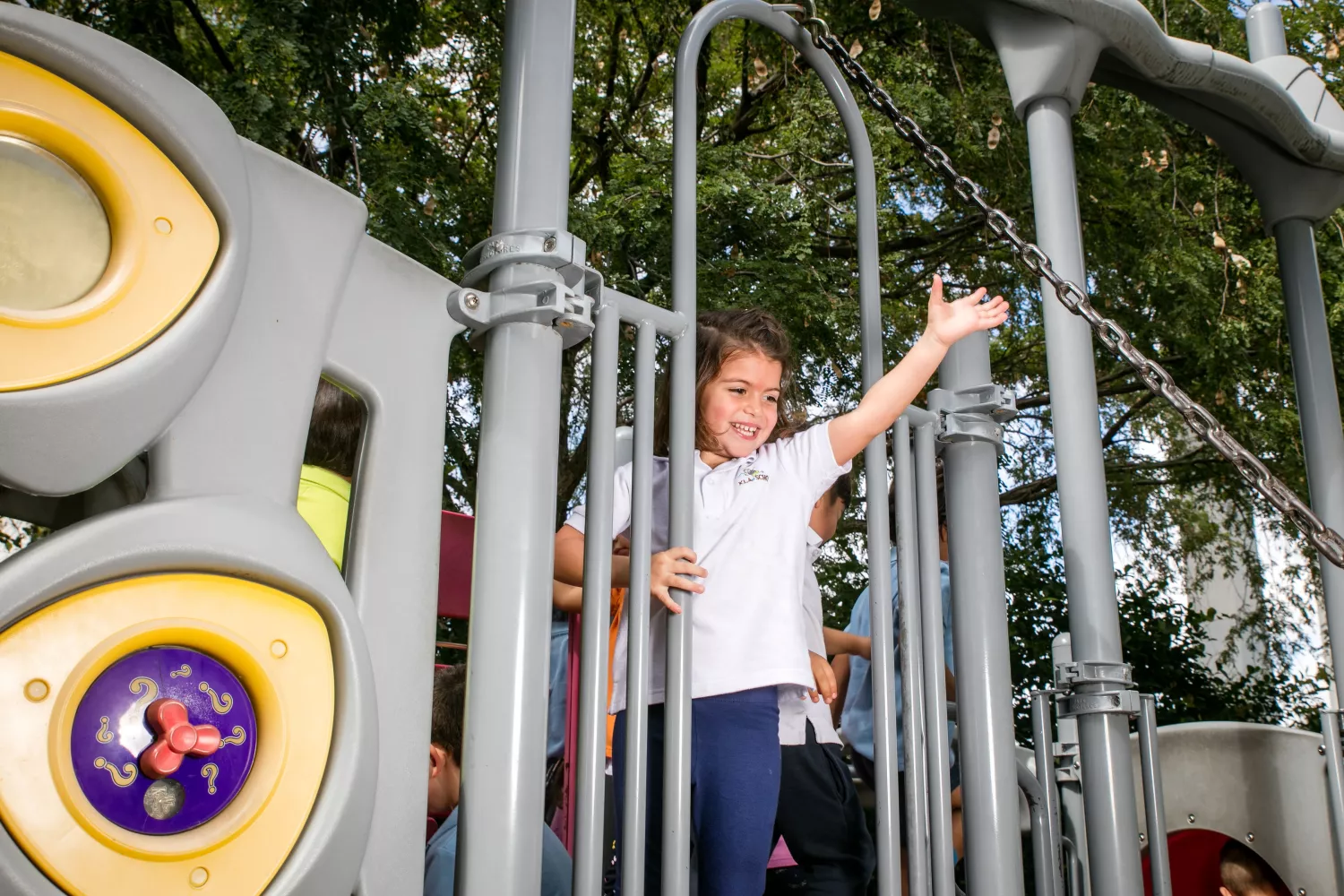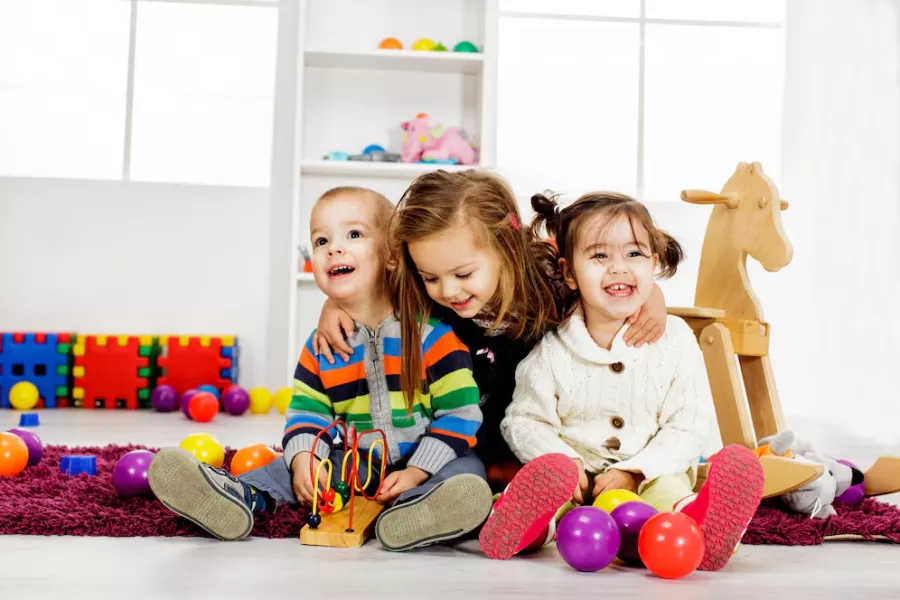25 Educational Benefits Of Play In Early Childhood Development
Topics: Family Fun
Age Range: Preschool
Play is often seen simply as entertainment for young children, but it holds a critical role in learning and development. During the early years, play is how children explore the world, express emotions, solve problems, and develop a strong foundation for future academic and social success.
Understanding the Benefits of Play in Early Childhood Development
The benefits of play go far beyond straightforward enjoyment. Through various games, young children strengthen cognitive abilities, build physical coordination, and practice vital emotional and social skills. Before the game, early childhood development includes opportunities for active exploration, critical thinking, and creative expression, all of which are necessary for holistic growth.
Diverse Types of Play and Their Unique Contributions to Growth
Children engage in various types of play, each contributing differently to development:
- Physical play: Activities like running, climbing, and jumping build gross motor skills and body awareness.
- Constructive play: Building with blocks or creating art, fosters problem-solving, spatial awareness, and fine motor coordination.
- Pretend play: Role-playing activities stimulate imagination, narrative thinking, and emotional processing.
- Social play: Playing games with peers teaches cooperation, communication, and conflict resolution.
- Sensory Play: Activities like sand or water play enhance sensory integration and encourage exploration.
Recognizing these types helps caregivers design enriching environments that maximize the benefits of play.
1. Enhances Cognitive Flexibility
Open-ended play experiences require children to adapt ideas, think creatively, and switch between different scenarios. This flexibility builds stronger problem-solving abilities and prepares them to face unexpected challenges with ease and confidence.
2. Strengthens Fine Motor Skills
Manipulating small objects, such as beads, crayons, or building blocks, during play refines hand-eye coordination and finger strength. Fine motor skills are crucial for writing, self-feeding, and performing daily self-care tasks with increasing independence.
3. Boosts Gross Motor Development
Activities like jumping, climbing, and riding tricycles help develop motor skills. Gross motor strength supports posture, stamina, and the ability to engage in more complex physical activities as children grow older.
4. Fosters Language Development
Through storytelling, make-believe games, and interactive group play, children naturally expand their vocabulary. Using language in different contexts builds fluency, expressive skills, and an understanding of tone, sequence, and structure.
5. Encourages Mathematical Thinking
Play involving counting, sorting, and recognizing patterns introduces toddlers to basic math concepts. These early experiences with numbers, sizes, and quantities lay a strong foundation for future academic success in mathematics.
6. Builds Social Competence
Engaging in group play teaches critical social norms such as taking turns, empathizing with peers, and resolving conflicts. Children learn to collaborate, communicate effectively, and understand others' points of view.
7. Develops Emotional Regulation
Pretend scenarios provide a safe space for children to express and process feelings like anger, fear, or excitement. Practicing emotional responses through play helps build self-control and coping strategies essential for good mental health.
8. Strengthens Problem-Solving Abilities
Children often encounter challenges during play, such as building a taller tower or resolving a group disagreement. Overcoming these obstacles fosters critical thinking and perseverance.
9. Sparks Creativity and Innovation
Unstructured play encourages children to invent new stories, create original games, and imagine alternate worlds. Developing creative thinking skills enhances cognitive flexibility and nurtures a lifelong love of innovation.
10. Promotes Resilience and Perseverance
When faced with setbacks during play, like a structure falling or losing a game, children learn to persist and adapt. Building resilience helps them face real-life challenges with a positive mindset.
11. Facilitates Early Science Skills
Exploring nature, mixing substances, or observing cause and effect during water play nurtures inquiry, experimentation, and curiosity—core components of scientific thinking that children will build upon throughout their lives.
12. Teaches Self-Discipline and Rule Following
Games with rules, such as tag or simple board games, teach children to follow directions, wait their turn, and exercise impulse control, which are crucial behaviors for classroom readiness and social success.
13. Supports Cultural Understanding
Pretend play often involves enacting roles from various communities and traditions. Through exposure to different cultures, children build empathy, respect, and an appreciation for diversity from a young age.
14. Improves Memory and Recall
Repeating songs, rhymes, and familiar play routines strengthens neural pathways related to memory. These early memory-building activities support cognitive development and later academic learning, especially in reading and math.
15. Develops Visual-Spatial Skills
Building structures with blocks, completing puzzles, and navigating obstacle courses help children understand spatial relationships, which are crucial for math problem-solving and grasping geometric concepts.
16. Encourages Healthy Risk-Taking
Climbing higher, trying new games, or exploring unknown areas during outdoor play teaches toddlers to assess risks thoughtfully and fosters bravery, encouraging independent decision-making skills.
17. Enhances Listening Skills
Interactive group activities, storytelling, and "follow-the-leader" games help improve auditory processing and listening skills, enabling toddlers to become attentive learners who can follow complex instructions.
18. Promotes Collaboration and Teamwork
Building forts, organizing group pretend play, or participating in team sports introduces children to collaborative processes, where they learn to negotiate roles, share leadership, and work toward common goals.
19. Cultivates Patience and Turn-Taking
Waiting for a turn in games or during group activities teaches patience and fairness. These experiences help toddlers internalize the social rules needed for successful relationships and future classroom participation.
20. Instills Early Leadership Skills
Leading a game, organizing a pretend play scenario, or making group decisions builds toddlers' confidence, assertiveness, and ability to inspire peers, laying the groundwork for future leadership abilities.
21. Stimulates Curiosity and Exploration
Play invites children to investigate how things work, why events happen, and what different possibilities exist. This natural inclination toward inquiry forms the basis for scientific exploration and lifelong learning.
22. Provides Opportunities for Goal Setting
Setting goals during games, like building a higher tower or completing a scavenger hunt, teaches planning, perseverance, and satisfaction in achieving personal or group milestones.
23. Encourages a Love of Learning
When play is integrated with exploration, storytelling, and discovery, children associate learning with excitement and curiosity, which fosters positive attitudes toward education throughout their lives.
24. Develops Early Literacy Skills
Pretend menus, handmade signs, and dramatic play involving storytelling strengthen pre-reading and writing skills. Exposure to print concepts and narrative structures enriches early literacy development.
25. Supports Overall Mental Health
Play provides an emotional outlet, reducing anxiety and supporting a positive mood. Engaging in playful activities fosters joy, resilience, and self-confidence, creating a stable emotional base for further growth.
Exploring the Benefits of Sensory Play in Child Development
Sensory play, such as manipulating sand, water, or textured objects, stimulates multiple senses at once. These experiences enhance brain development, fine-tune motor skills, and foster language growth through tactile exploration. Sensory play also helps soothe stress and nurture focus and mindfulness.

Why the Benefits of Outdoor Play Are Essential
Outdoor play exposes toddlers to dynamic environments where physical movement, environmental observation, and social interaction flourish. Activities like hiking, running, or gardening promote physical health, emotional regulation, risk management, and deeper connections with nature, amplifying the benefits of play beyond traditional indoor settings.
Connecting Different Types of Play to Comprehensive Development
Each type of play—constructive, imaginative, physical, sensory, and social—offers unique developmental rewards. Integrating a variety of play experiences builds a robust skill set, ensuring children grow cognitively, emotionally, socially, and physically prepared for future success.
Laying Strong Foundations for Lifelong Success Through Play
The benefits of play ripple outward far beyond early childhood. Toddlers who explore, imagine, build, and collaborate develop the cognitive, emotional, and physical skills needed for school readiness and lifelong learning. Encouraging varied and purposeful play ensures that children grow into resilient, curious, and empathetic individuals who thrive academically, socially, and personally.

